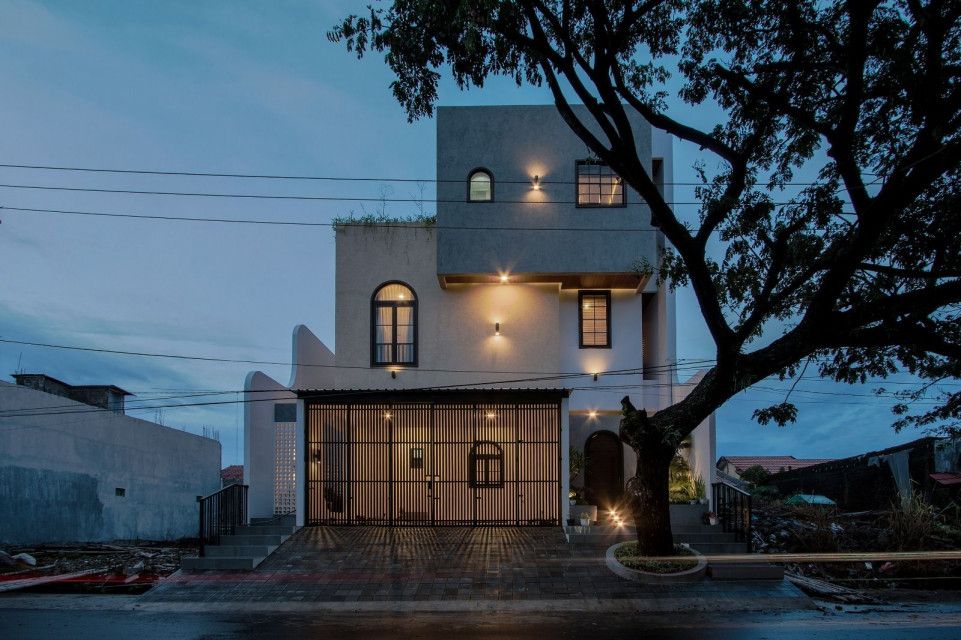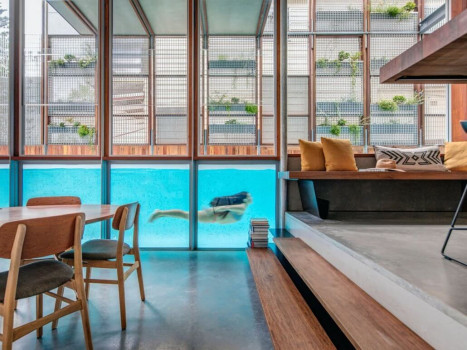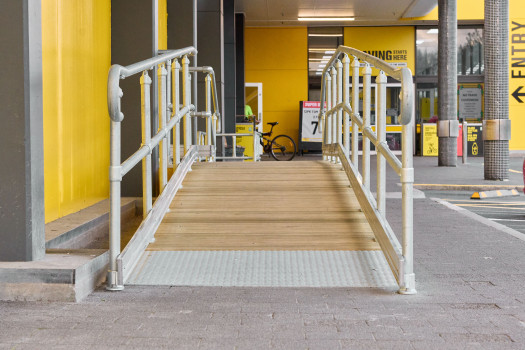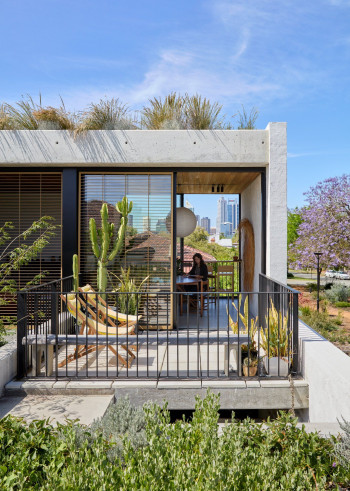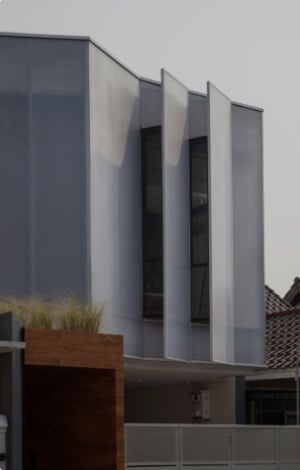Rumah Sore 2 Gives Home to A Big Family with the Impression of Luxury in Simplicity



Built for a married couple who spends most of their time working outside of Parepare city for months, Rumah Sore 2 is a secondary home where the couple can spend quality time with their six children during their time off work. The house is also planned as a retirement home for the couple. Sitting in a 10×20-metre land area, the house is designed to accommodate all activities for the big family while also considering that the couple and some from the extended family are elderly.
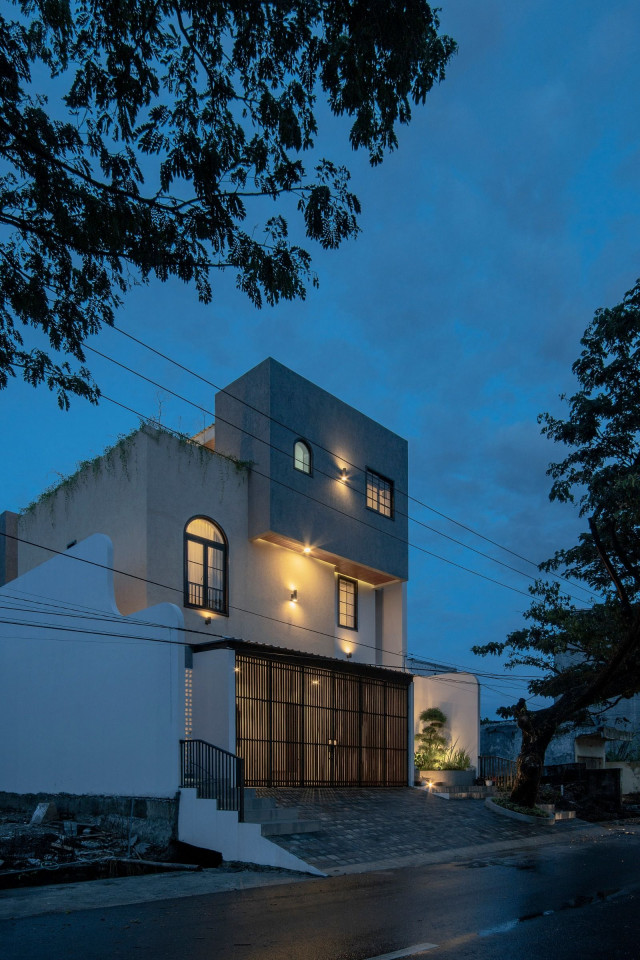
Indonesians are regarded as being friendly. Values about family and social conducts are also given a prominent position, especially for the Bugis tribe in South Sulawesi. Family gatherings and guests visits often happen and even require its own space. Both held regularly and spontaneously, the culture of togetherness is always upheld. Based on this nature, every space in the house is maximised so that all occupants can still interact with each other even from different floors.
Enlarging natural light source and indoor air quality also becomes the main reference of the house design, since it has been proven to increase health benefits and comfort levels for building occupants.
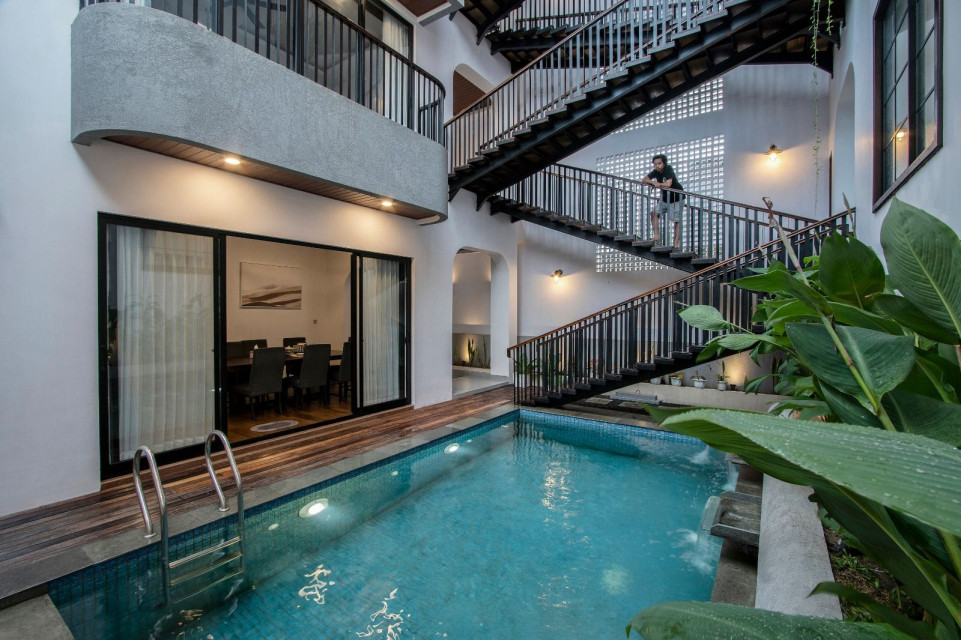
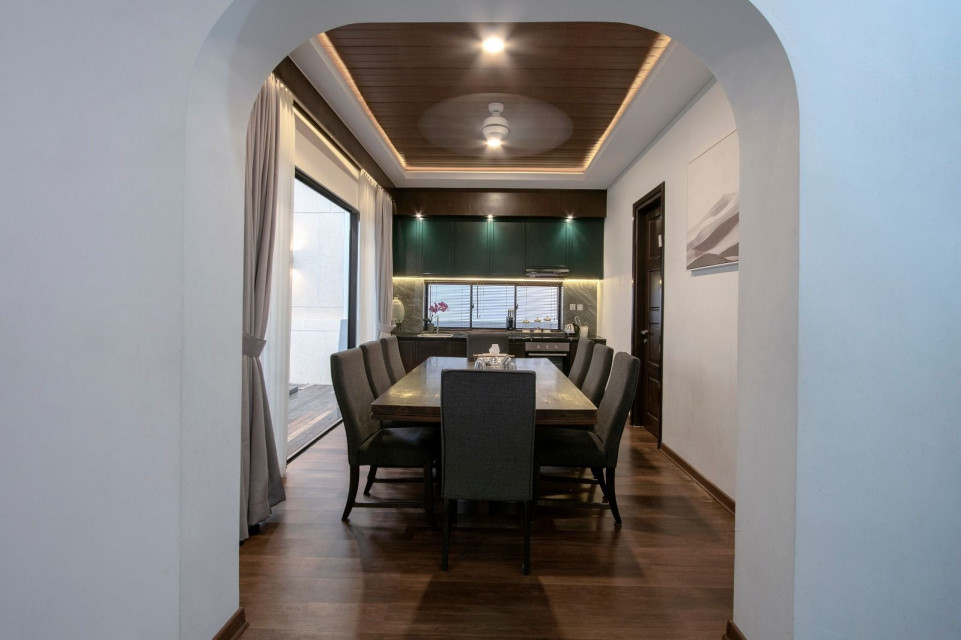
The house is divided into 2 building masses consisting of 3 floors each with a split level difference between the two masses. This aims to gain efficient stairs access between floors with a very low slope so it can easily be accessed by the elderly. The stairs reach up to the rooftop level where they can enjoy the sea view.
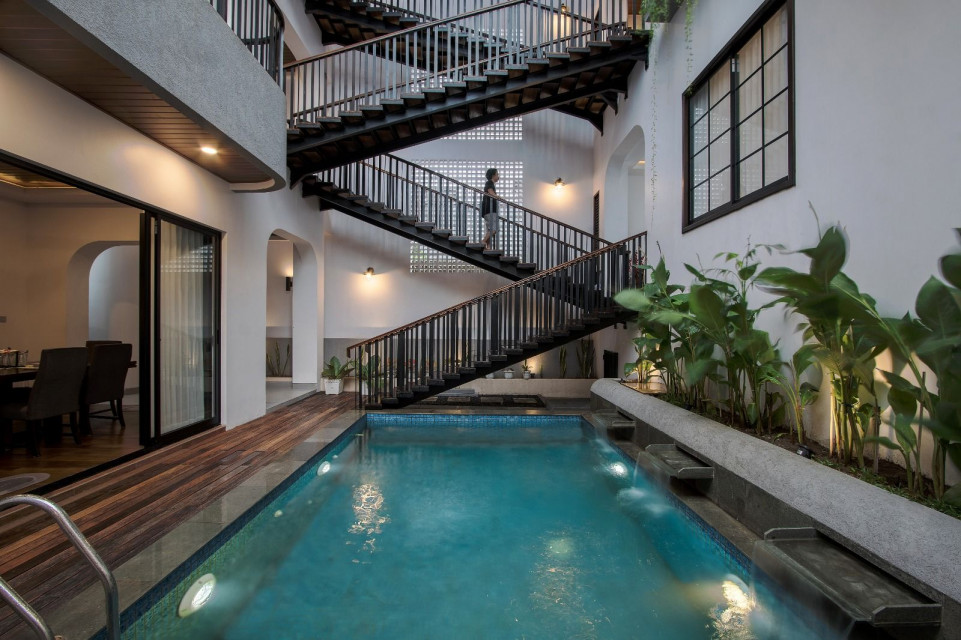
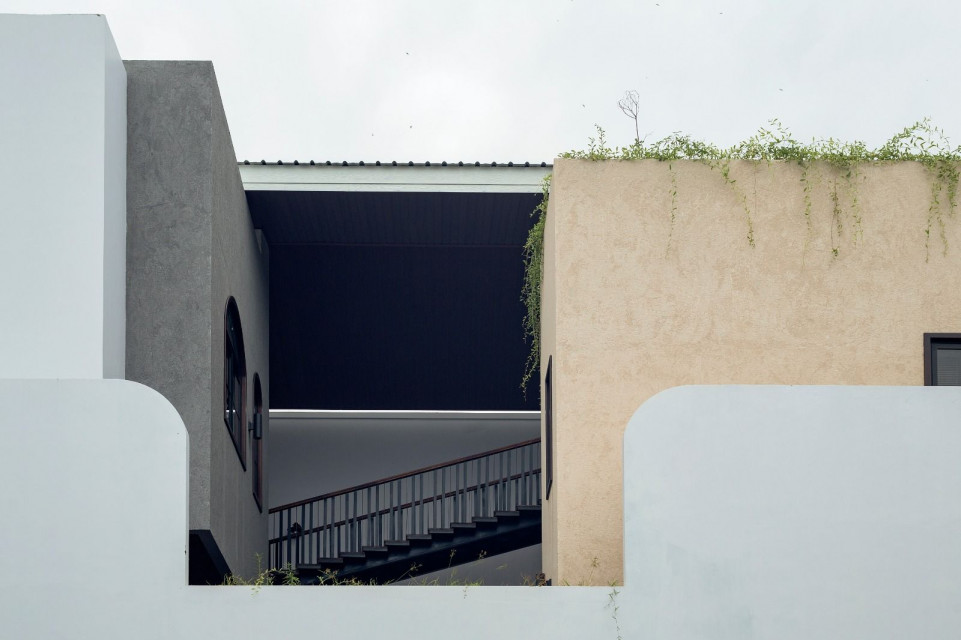
The stairs are positioned between the two building masses, side by side with the swimming pool which makes the airflow regulates interior temperatures, prevents mould, and also removes impurities in all rooms more easily. This void area in the middle of the house is where the interactions occur: between occupants both from building masses in each room, from the first to second floor, from the second to third floor, from the pool area to dining room, from the stairs to pool area, and from the living room.
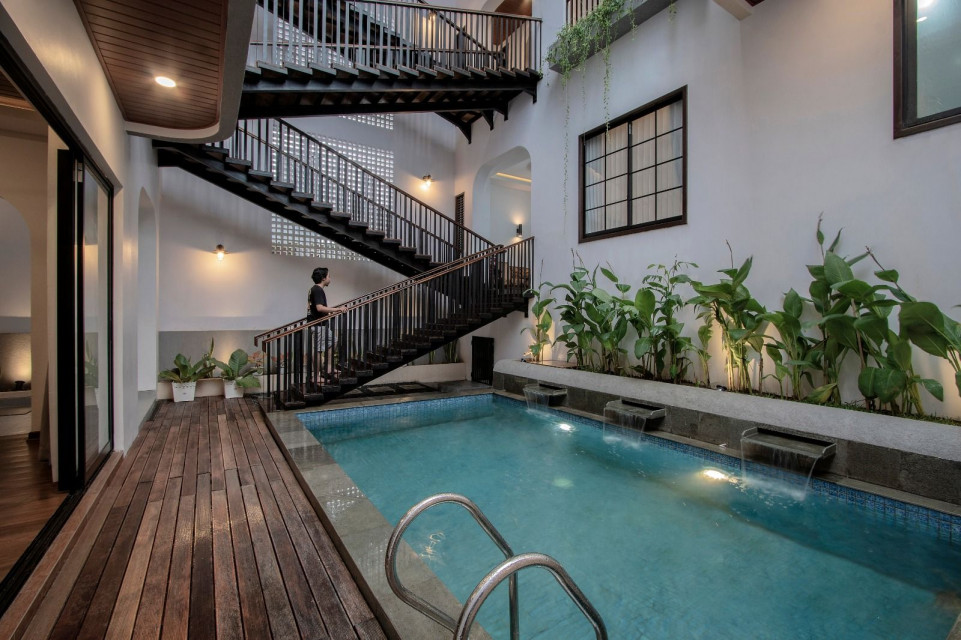
On the right and left sides of the house, there are open spaces so that the building masses do not fill the land boundary. These open spaces also give more access to ventilation and natural lighting while shaping the building masses so all spaces can have openings to the outdoors.
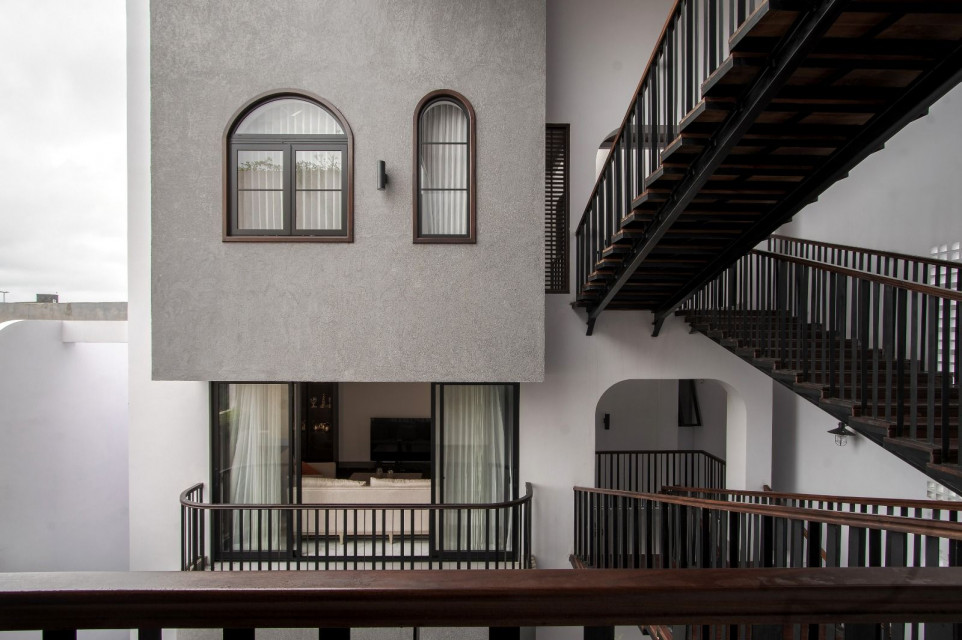
There are 2 accesses to enter the house: the main access through the foyer and the secondary access through the garage area which is connected directly to the kitchen area. From the foyer, you can connect to the guest rooms, go down to the swimming pool and dining room area, go up to the movie room area, and gain access to the bedrooms.
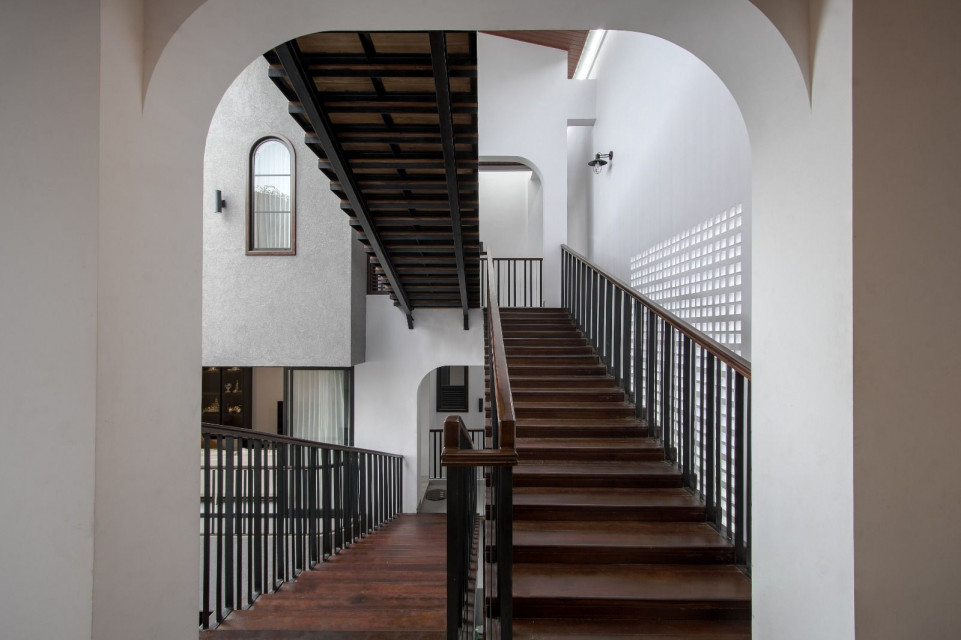
The master bedroom and prayer room are located on the second level in the first building mass. The other rooms are on the third level in the first building mass and the second level in the second building mass. The master bedroom and the prayer room are spaces that must be passed by the children when going to their respective bedrooms or passed by the movie room. This design creates chances of interaction with the parents and acts as a reminder to pray together.
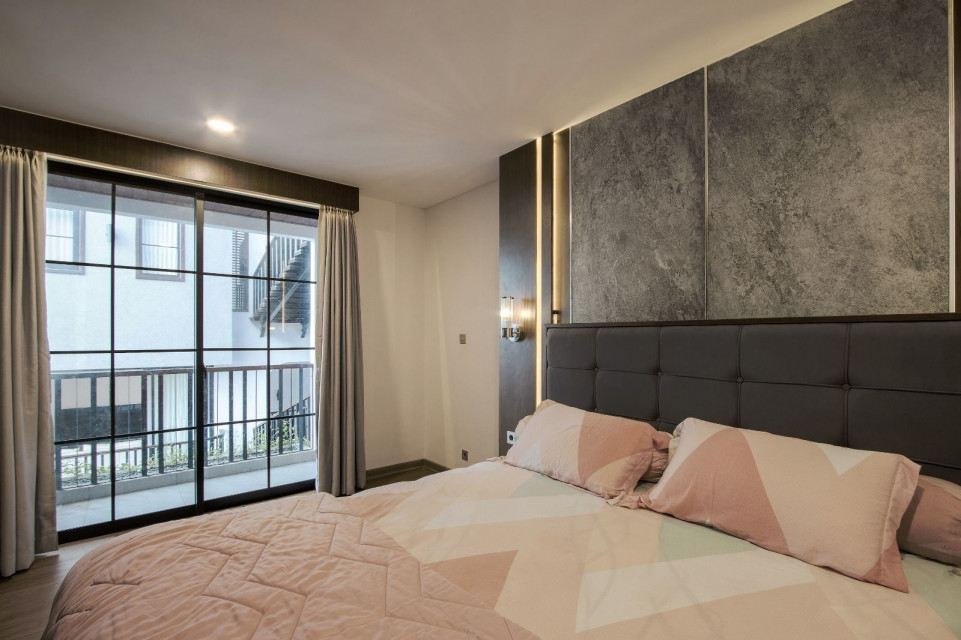
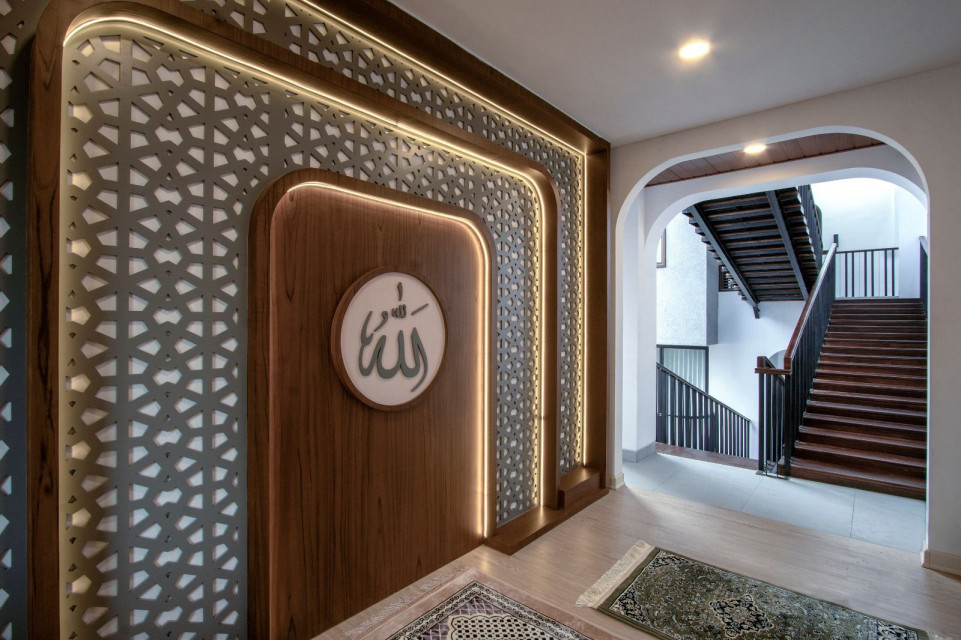
The room arrangement is also a spatial strategy to help develop the character and personality of the children. Nearby the movie or family gathering room, there is a service area in the form of a laundry room for washing and ironing where the parents can also be watching while accompanying and interacting with children doing the household chores. As the house has no household assistants room, the design is also an attempt to have the children do household chores independently without the help.
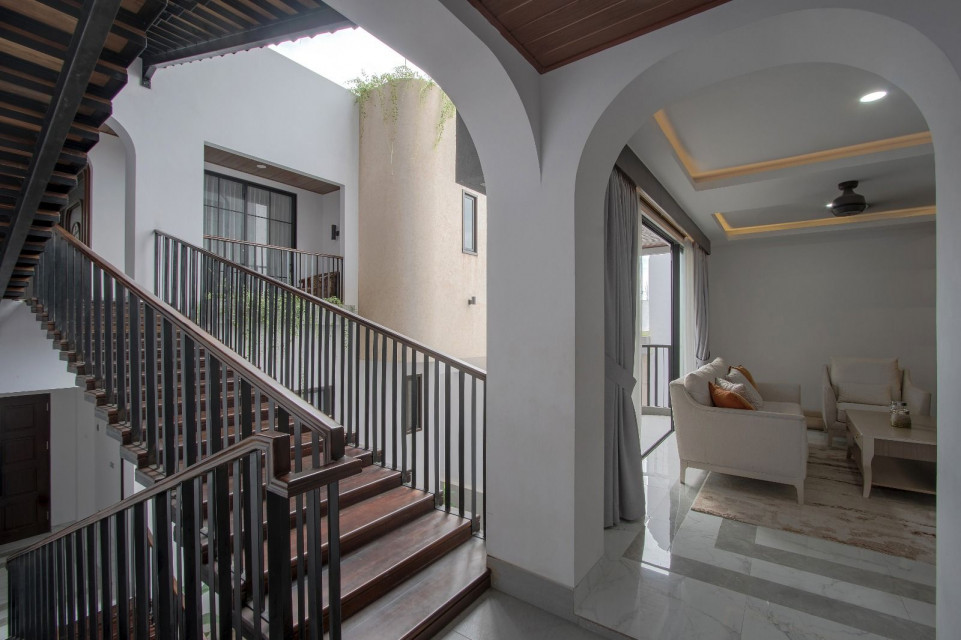
The Ibiza Mediterranean is a theme that is stretched as an implementation of a tropical atmosphere in the house with the lifestyle of homeowners who want to give the impression of luxury in simplicity.
The use of simple, easy to obtain, and easy to apply materials is implemented in the project. The natural textures and colours walls finishing, the combination of iron and wood, and the presence of water elements in the mass of the building are strengthening the concept and design theme carried in the house. The materials selected are also easy to maintain.
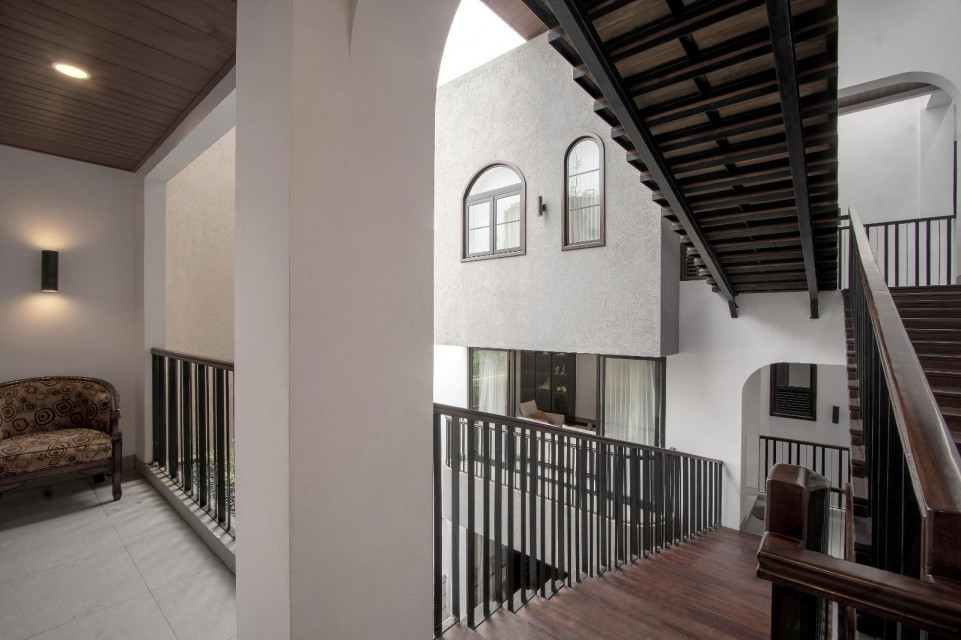
As the house is located approximately 160 kilometres from downtown Makassar, it was a challenge for the architect’s team in assisting the construction process, especially since the project did not use a contractor service. Instead, a team of local builders chosen by the client and the architect team were entrusted as supervisors and advisors in providing construction materials. There was intense coordination between the team of builders and the architects team in translating the design technically in the construction process.




 Indonesia
Indonesia
 Australia
Australia
 Philippines
Philippines
 Hongkong
Hongkong
 Singapore
Singapore
 Malaysia
Malaysia


